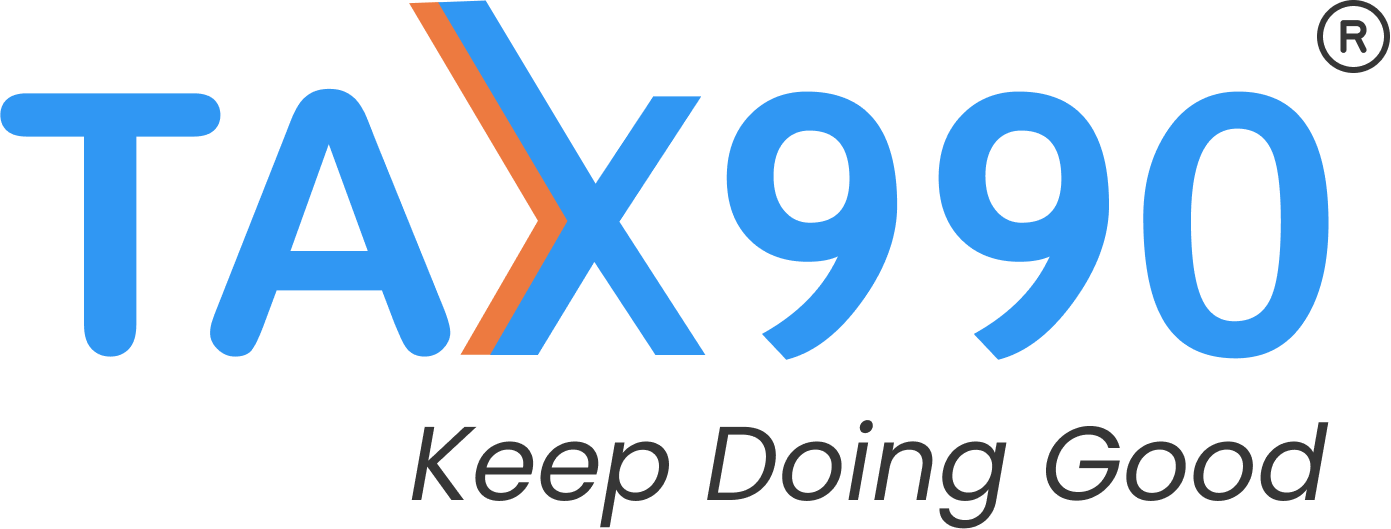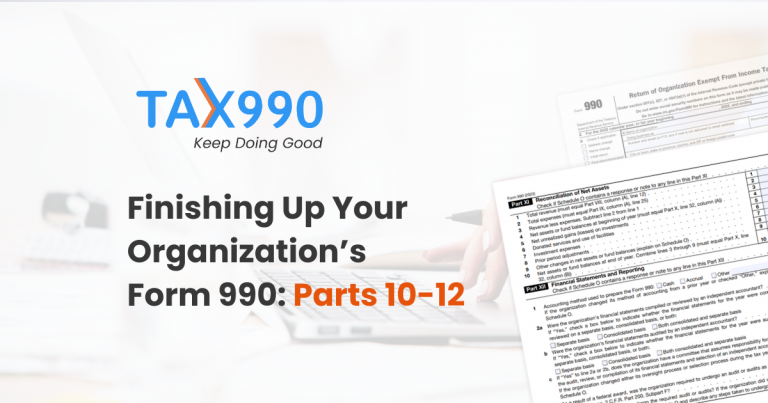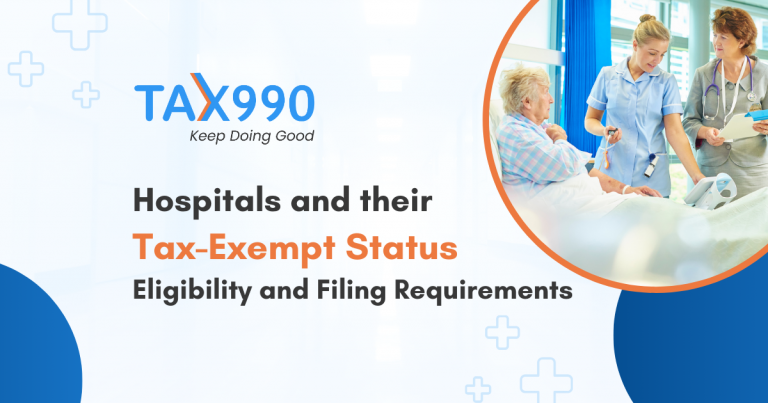Estimated reading time: 14 minute(s)

Keeping meticulous records is not just a best practice; it’s an essential requirement for nonprofits. You never know when you might need to access historical financial data, crucial governing documents, or past tax returns.
Here at Tax990, our team is all about staying savvy, saving time, and helping your organization work smarter, not harder. While we offer simple and streamlined e-filing, we also offer features that improve your recordkeeping process…no filing cabinet required!
To help you stay on top of your record-keeping game, we’ve compiled some valuable tips for retaining and accessing your organization’s documents with ease.
-
Create a Tax990 Account with an Organization Email
First things first, when it comes to filing your annual returns, use an email address associated with the organization rather than an individual’s. This simple step ensures that even if the person responsible for filing leaves the organization, the next in line will have seamless access to all the relevant documents. No more scrambling to regain control over vital records.
-
Leverage Tax990’s Historical Records
Tax990 has your back when it comes to record-keeping. It retains records of all the forms you’ve previously filed. Need to download last year’s return or share it with specific individuals like a new treasurer, board members, or donors? Tax990 makes it a breeze.
-
Make the Most of the IRS Database
The IRS database is a treasure trove of information, and you should use it to your advantage. It includes records of recently filed returns, your organization’s determination letter, and details about any revocation if your organization received a final notice.
Simply visit IRS Exempt Organizations Select ‘Check’, enter your organization’s Employer Identification Number (EIN), and access these valuable records. If you ever forget your organization’s tax year or exempt status, you can find this information on the determination letter, typically available in the IRS database.
-
Track Your Financial Records Regularly
Don’t leave your financial records until the last minute. Track your compensation, expenses, revenue, assets, and liabilities throughout the year. Keeping detailed and up-to-date records is a smart way to ensure you’re organized when it’s time to file your annual return.
-
Maintain Up-to-Date Volunteer and Governing Body Records
Organizations go through changes, but that doesn’t mean you should lose track of past governing bodies or key employees. Even with leadership transitions, you might still need to report this information on your return at the end of the tax year. To save time in the future, maintain up-to-date records year-round so that you can access and report this information accurately when required.
-
Organize and Keep Documents Accessible
For a smooth filing process, your documents should be well-organized and easily accessible. You don’t want to go on a scavenger hunt for information when you need it most. Establish a system that’s accessible to the necessary individuals and can be passed on seamlessly. Key documents like determination letters, governing documents, and mission statements should always be available for review to ensure your organization is adhering to its exempt purpose and reporting requirements.
-
Know What Needs to Be Saved and Kept on Record
Not all documents are created equal when it comes to retention periods. It’s crucial to know what needs to be saved and for how long. Generally, you should retain records that substantiate income, deductions, or credits for three years from the date of filing or the due date. Certain documents, like the determination confirming your organization’s tax-exempt status, articles of incorporation, by-laws, and board minutes, need to be retained permanently. Additionally, employment tax records should be retained for four years.
By following these practical tips, you can streamline your organization’s document retention and access process, ensuring that you’re always well-prepared for audits, filings, and any other unforeseen circumstances that may arise. Stay organized, stay compliant, and keep your mission on track.
Maintain IRS Compliance and Accurate Records with Tax990!
- Tax990 is a comprehensive, secure location for all of your nonprofit tax records! Whether your organization is large or small, you can easily meet your IRS requirements. Is your 990 deadline coming up?
- Remember, if you requested an extension for a May 15, 2023 deadline, or your organization operates on a fiscal year beginning July 1st and ending June 30th, you likely have a deadline coming on November 15, 2023!
- If you’ve filed your 990 Series return with Tax990 in the past, you can take advantage of our Copy Data Feature, this allows you to pull information from last year’s return. That’s a major time-saver.
Tax990 has you covered with time-saving features:
- Direct-form Entry or Interview-style filing options
- Built-in Audit Check feature to prevent common errors
- Schedules are included in your filing fee
- Bulk Upload templates
- After completing your return, run it by your team and board members using our Reviewers and Approvers feature!
Ready to get started? Create your free Tax990 account now!




